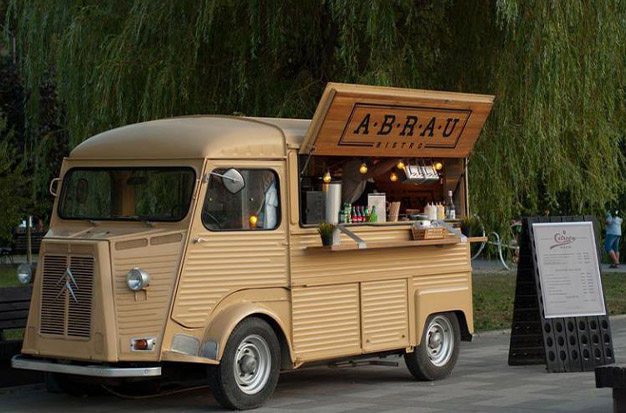Before you can take to the streets with your new food truck business, you’ll have to acquire the proper permitting. Although food trucks share similarities with restaurants in regards to selling food, there are some differences between restaurant permits and licenses and those required for food truck vendors. Depending on where you intend to sell your food, we’ll give you a list of the most typical licenses and permits that almost every state requires of food trucks as well as examples of some of the permits you might come across.
What Is Required To Launch A Food Truck?
A comprehensive business plan and a written contract with your “commissary,” or the location where you prepare and store food, are prerequisites for starting a food truck. Keep in mind this when looking online for resources that are local to your area since some states, like Massachusetts, refer to food trucks as “mobile food establishments.”
Let’s examine some of the specific actions that necessitate food truck permits or licenses.
Food Truck Activities That Require Various Permits And Licenses
- Preparing and selling food
- Selling pre-prepped food
- Selling packaged time/temperature controlled for safety (TCS) food items like ice cream
- Selling beverages with TCS requirements like milk
- Doing food prep that’s considered “complex,” meaning cooking, heating, or food processing that requires hazard plans
What Permits Are Required To Launch A Food Truck?
Along with food truck insurance, you’ll need the appropriate food truck permits and licenses for your city and state to sell food legally. The names of licenses can vary, so make sure to check with your county clerk or state business office to make sure you’ve covered all the bases. No matter where you reside, the following permits and licenses are typically necessary for food trucks:
Business License
A business license also called a “vendor license” or “basic business operation license,” enables you to run a business in the city and state of your choice. Having the license gives the government the ability to track your operation for tax purposes and to identify it as a legitimate business.
The typical cost of a food truck business license ranges from $50 to $500, but application fees and conditions depend on your city. Make sure you are aware of your license’s expiration date and how to renew it. Some cities will limit the number of mobile food vendor licenses they distribute, sometimes putting new vendors in a lottery, so be sure to apply as soon as you complete your food truck business plan. Visit the website of your county clerk or the U.S. Department of Commerce to learn how to submit an application for a business license. Site of the Small Business Administration.
Employer Identification Number (EIN)
The EIN can be compared to the social security number of your company, and depending on your state, it will be given to you when you obtain your business license. In order to open a business account with your bank, begin establishing your company’s credit profile, and start hiring staff, you must first be officially registered as a business in the eyes of the IRS with the help of this document. The IRS offers free EINs, which is the best part. However, the procedure usually takes 4 weeks to complete, so make sure to allow plenty of time to apply before your anticipated opening day.
Driver’s License
You must have a current state driver’s license, as well as truck registration, in order to operate a food truck, just like you would with a car. Your regular driver’s license is sufficient in the majority of states. To determine whether you require a commercial driver’s license, other states, however, will consider the weight and length of your vehicle.
The price of a driver’s license can range from $10 to $100 depending on the state and type of license. For information on the requirements and application procedure for a driver’s license, get in touch with your local Department of Motor Vehicles (DMV).
Food Handler’s Permit
People who successfully complete food handler training and a food safety course are awarded a food handler’s permit, also known as a “food handler’s license” or “food manager certificate.” Most states only require the manager-on-shift to obtain the permit. If food is handled, prepared, cooked, or stored on the premises, other states require that at least one employee always have a current permit. Customers can rest easy knowing that your food truck staff is knowledgeable and skilled in sanitary and safe food-handling procedures thanks to the permit. Having certified managers also ensures that a member of staff is well-versed in food safety, which is another benefit for a health inspector.
Food handler’s permits typically cost less than $50 and are good for about 5 years. Most employees on a food truck are typically required to have their food handlers certificate, and cities typically ask that the cards be displayed for the general public to see. To obtain a food handler’s permit, visit the using the ServSafe website, you can find a testing location close to you and download the study materials.
Parking Permit
Obtaining a parking permit might be necessary, depending on where you want to park your food truck. Because food trucks might not be allowed on certain streets in your city. If your city already has a lot of food trucks and needs to avoid traffic congestion in some areas, other streets might have specific date and time restrictions.
Contacting your county clerk will enable you to obtain a parking permit. In accordance with city availability and street restrictions, they might also be able to assist you in mapping an efficient area of operation.

Health Department Permit
The health department will issue your truck with a permit, also known as a “food service license,” if it has passed the health inspection. An agent from the health department will examine your truck in search of health code violations and provide you with notes on what to correct along with an overall grade for your truck. In addition to making sure that there are clear HACCP plans in place, they look for proper food storage and general cleanliness. Your health score must be visible to customers in the majority of cities.
Depending on the city, the price of a health department permit can range from $50 to $1,000. To arrange a visit from an inspector, get in touch with your neighborhood health department by phone or email.
Seller’s Permit
You might need to look into obtaining a seller’s permit if you intend to prepare your meals with ingredients and supplies you buy in bulk.
You can buy goods at wholesale prices without paying sales tax if you have a seller’s permit. Additionally, it enables you to charge sales tax to customers who buy your food.
When setting up your food truck business, you should check with your state government because some states do not require seller’s permits.
Fire Certificate
If your food truck has on-board cooking equipment, the fire department will undoubtedly inspect it. Your food truck’s fire suppression system will undergo regular inspections, and they will instruct you on the rules you must abide by.
Liquor License
Some states permit the sale of alcoholic beverages from mobile vendors, such as food trucks that park themselves in designated areas and sell frozen cocktails, wine, and other items. In some states, there is a general license that applies to all forms of alcohol, but beer, wine, and liquor may have different requirements.
Special Event Permit
It’s possible that the state, the event location, or the event organizer will require you to have a special event permit if you intend to work at a special event, such as a food truck rally, a community festival, or a wedding. Special event permits are transient permits that give you permission to run your business temporarily at a particular location.
If you intend to attend a special event, be sure to check with the event organizer to find out which permits you will need because not all states or locations require them.
See more about How Much Does It Cost To Rent A Food Truck?
Hawker And Peddler License
Some local governments require businesses that move from town to town to sell goods to obtain a hawker and peddler license.
Commissary Letter Of Agreement
Some states forbid food trucks from doing any cooking inside the truck. You might have to make your food in a commissary or commercial kitchen in these situations.
The owners of food businesses can rent out commercial kitchens and commissaries, which offer cooking areas, food storage, and other essential ingredients for food preparation. A signed letter of agreement or contract serving as proof that you are using the facility to prepare food must be given to the state or county once you have a commercial kitchen or commissary.
Fortunately, thanks to businesses like The Kitchen Door, which let you search for a commercial kitchen by city or zip code, finding a commercial kitchen or commissary is simpler than ever.
If you’re unsure whether you need to submit a commissary letter of agreement, you can check with your local county or state government.
Retail Seafood Truck Permit
Local boards of health in places like New England control the sale of recently caught seafood and require inspections.
Ice Cream Truck Vendor License
In some places, the chief of police or another municipal authority may inspect the safety of every ice cream truck vendor.
Conclusion
Running a successful business requires knowing what licenses and permits are required for a food truck. The permits can vary depending on which type of mobile food business you own and where you plan to sell food so be sure to reach out to your local small business office and county clerk for a complete list of permits you need to operate legally. Learn what to anticipate as you launch your business by using the list we provided above.
